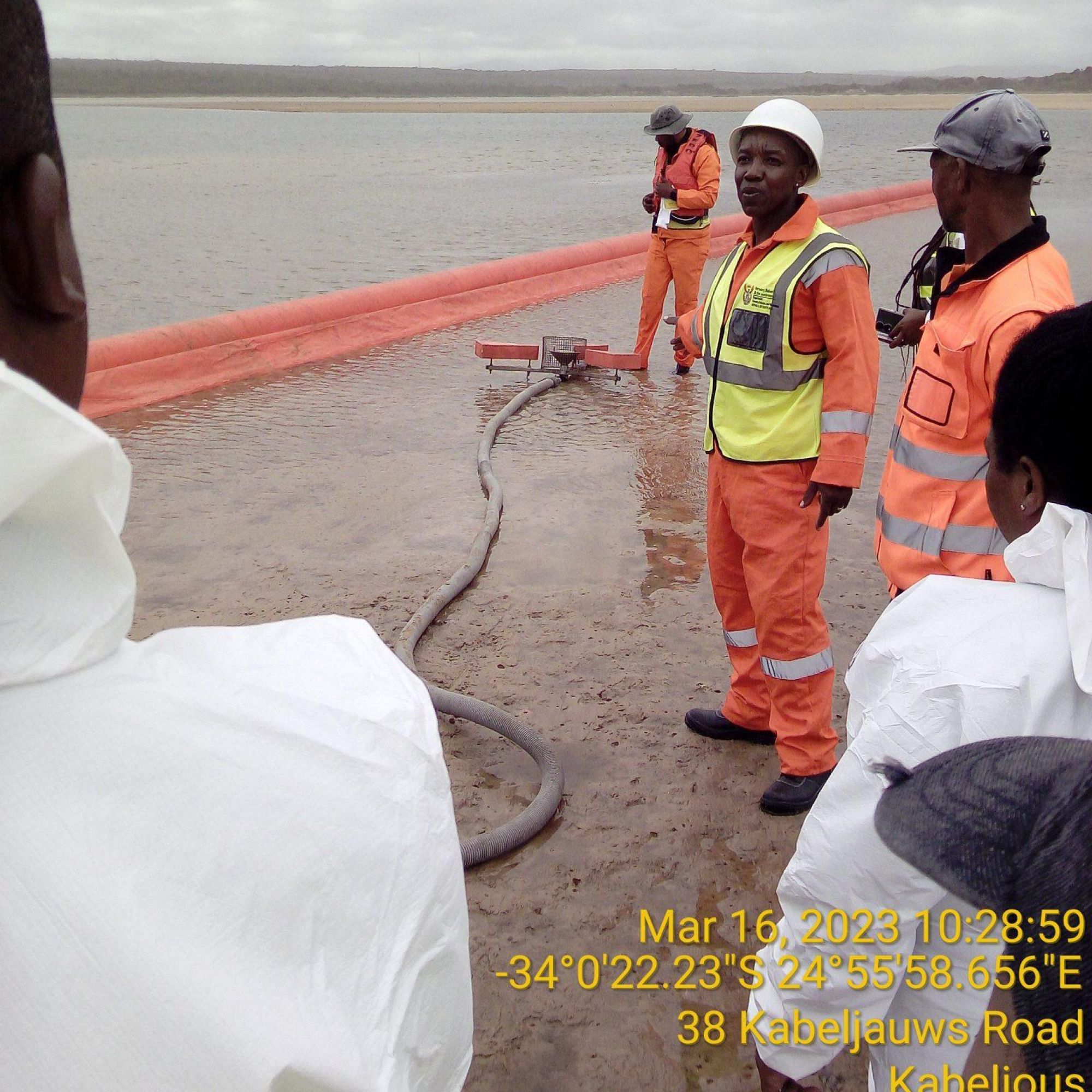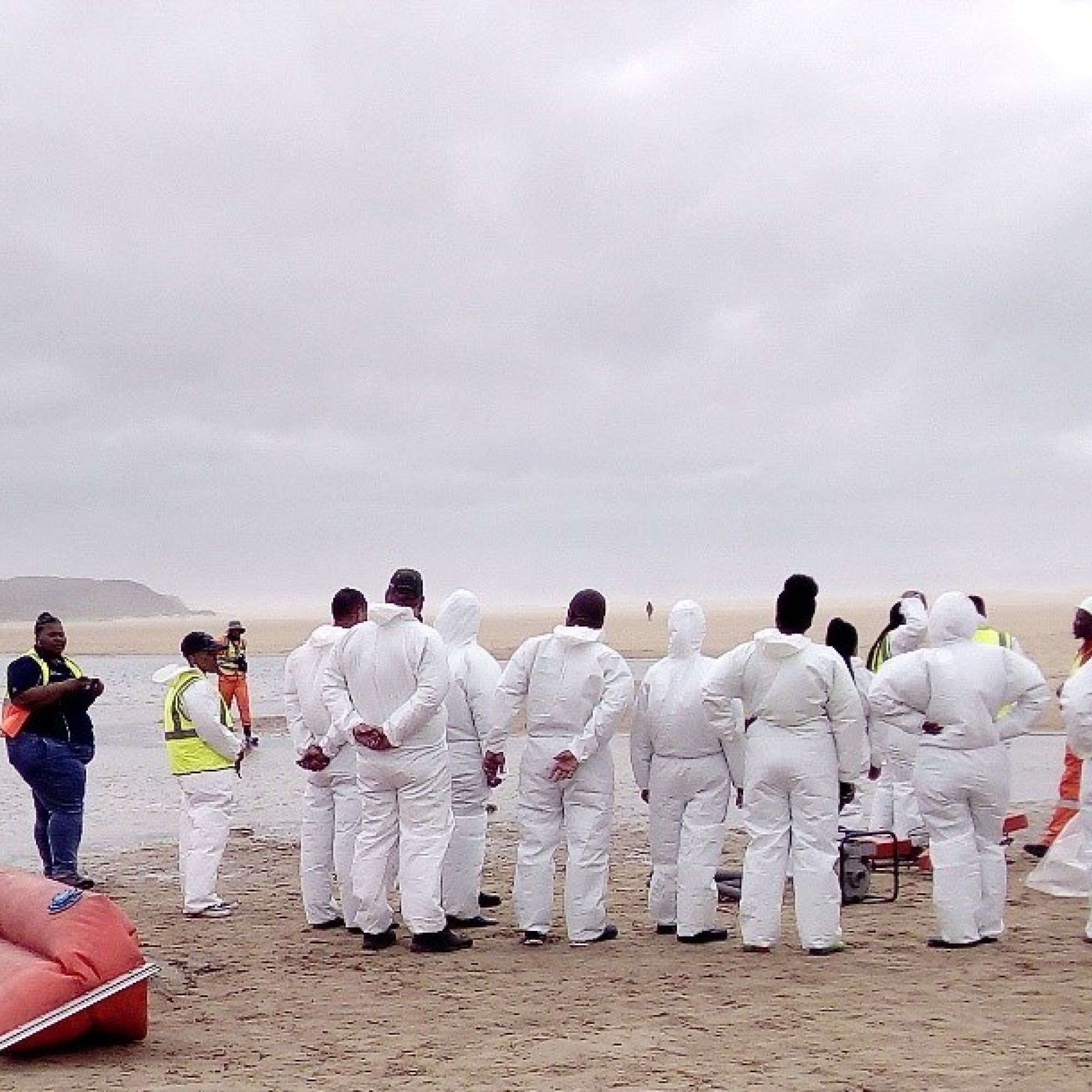
Oiling the Response
The successful implementation of the Phakisa Operations: Ocean Economy workstreams, particularly the Marine Transport and Manufacturing and Offshore Oil and Gas Exploration work streams are bound to result in accidental pollution events, despite the best practice being used to manage and prevent these unfortunate events.
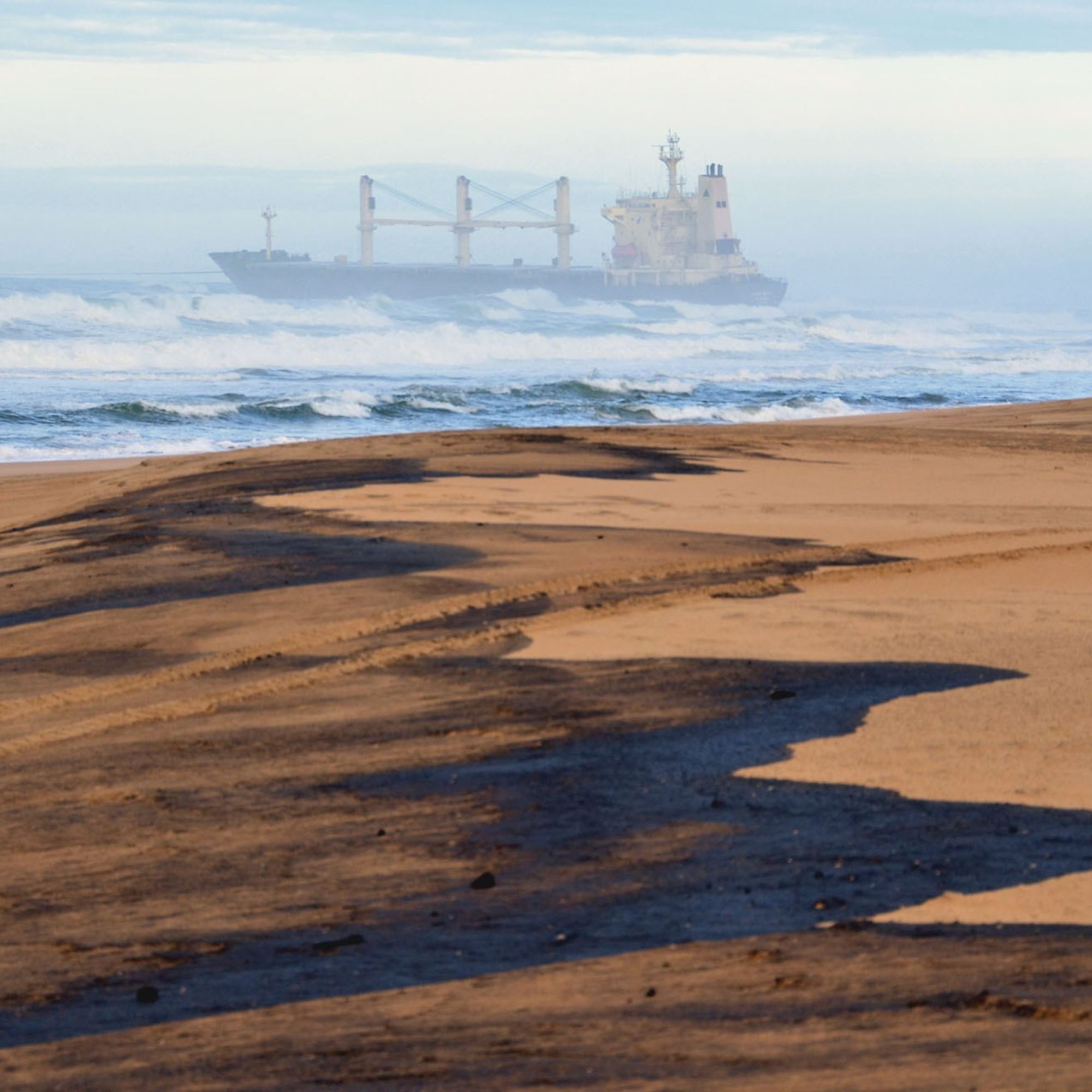
Photo by Keith Spencer, Kianu Satu, 2013.
In August 2013, the Kianu Satu lost her tow during a coastal operation and without engine power grounded on a shallow reef of the coast of the Southern Cape. The accidental grounding resulted in the Goukamma Marine Protected Areas beaches receiving the brunt of the oil split during the shipping accident.
Undoubtedly, the single most concerning event is a dreaded oil spill. Oil spills could originate from accidental spillage during various offshore operations such as Oil and Gas Production, shipping accidents, oil bunkering or transfer operations or even illegal dumping. Oil spilt at sea is difficult to contain and almost always results in oil reaching the shore.
Preparedness for such an event is probably the single most important factor to have in place on the ground to make any response the most efficient and effective. Awareness is, in turn, the foundation of being prepared.
The Eastern Cape’s jewel town of Jeffreys Bay was the focus for the Department of Forestry, Fisheries and Environments (DFFE) Coastal Pollution Management team to run a hands-on workshop aimed at improving awareness and ability of Local Authority staff to respond effectively to a localized oil spill along the weather swept coast.
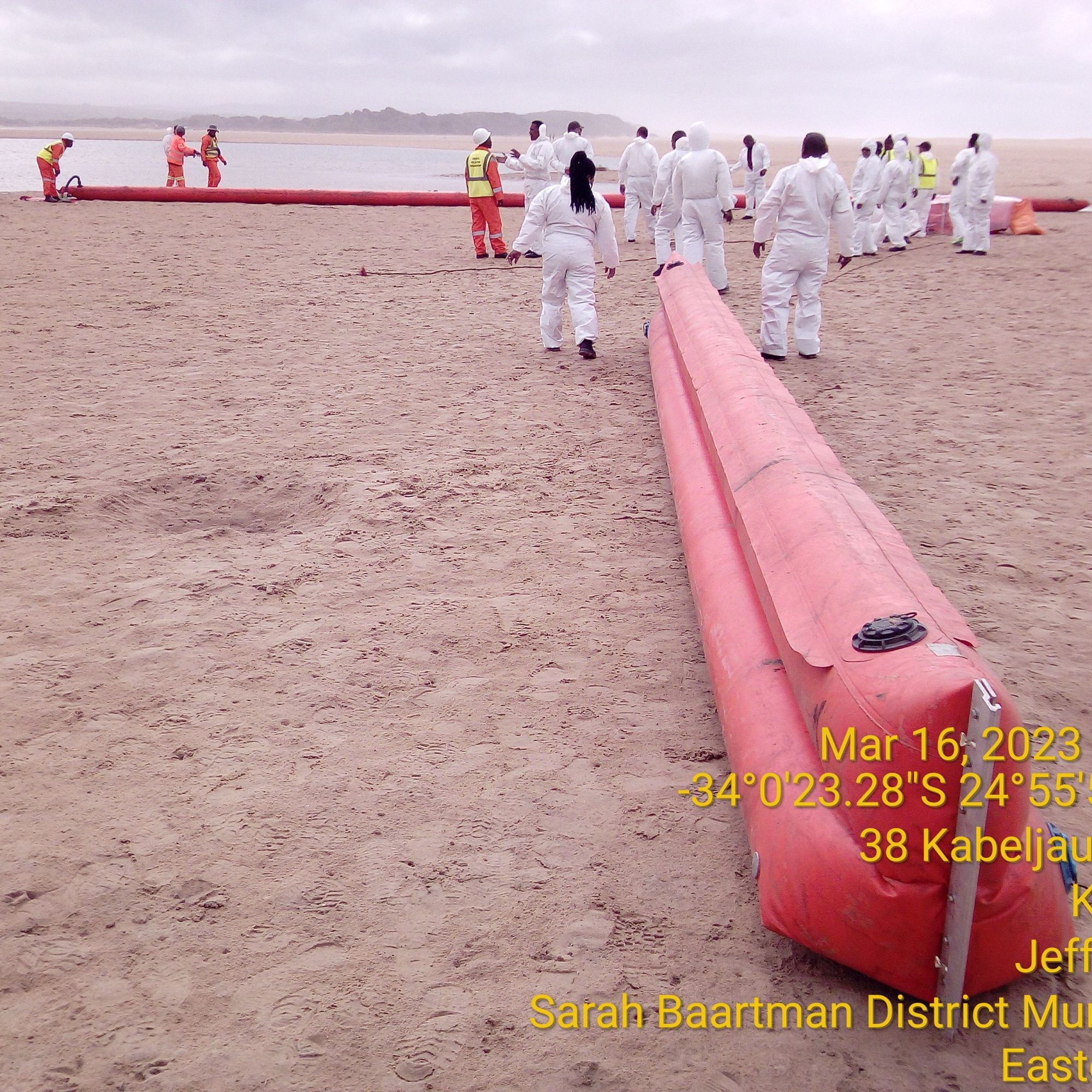
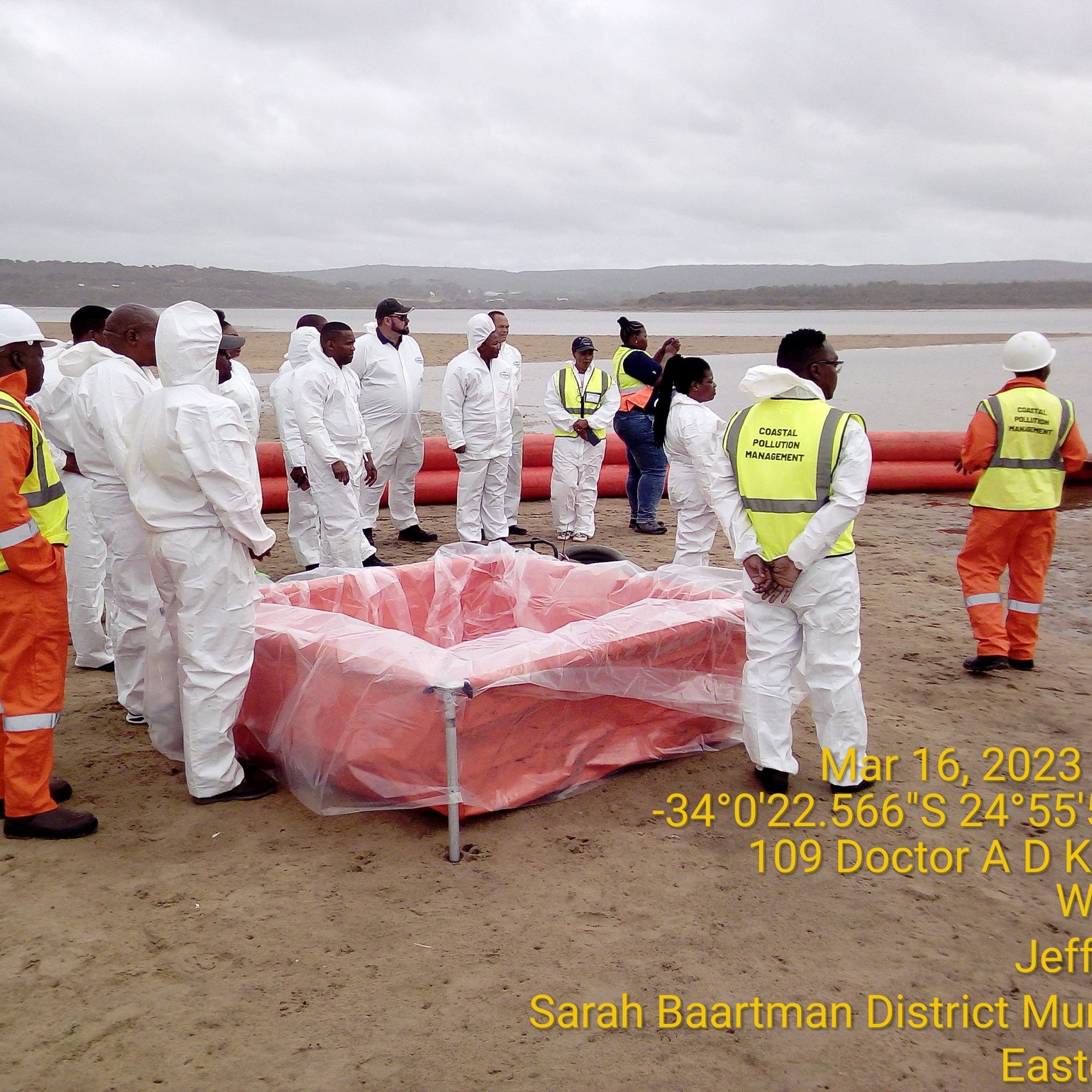
Thirty partner participants from DFFE, SANParks, CapeNature, Sarah Baartman District Municipality and Local Municipalities of Kouga, Koukamma and Nlambe took part in the workshop.
On Day 1, a series of presentations and discussions covered the Causes and Fate of oil spills; the Environmental and Socio-Economic Impacts of oil spills; Principles of oil spill Preparedness and Response and Waste Management.
On Day 2, some surprised participants found themselves fully Tyvek coated, wet soled and sandy-handed while the experienced Pollution Management team members instructed the establishment of Hot, Warm and Cold Zones, erecting of signage, pump starting and boom inflation, boom positioning and anchoring, oil skimmer operations, crowd control and management, waste management and several smaller on-site aspects, all under the banner of Environmental Protection, that would be required during a typical response.
Good comradery and cohesive work by all ensured a successful awareness-raising and hands-on experience for all participants.
